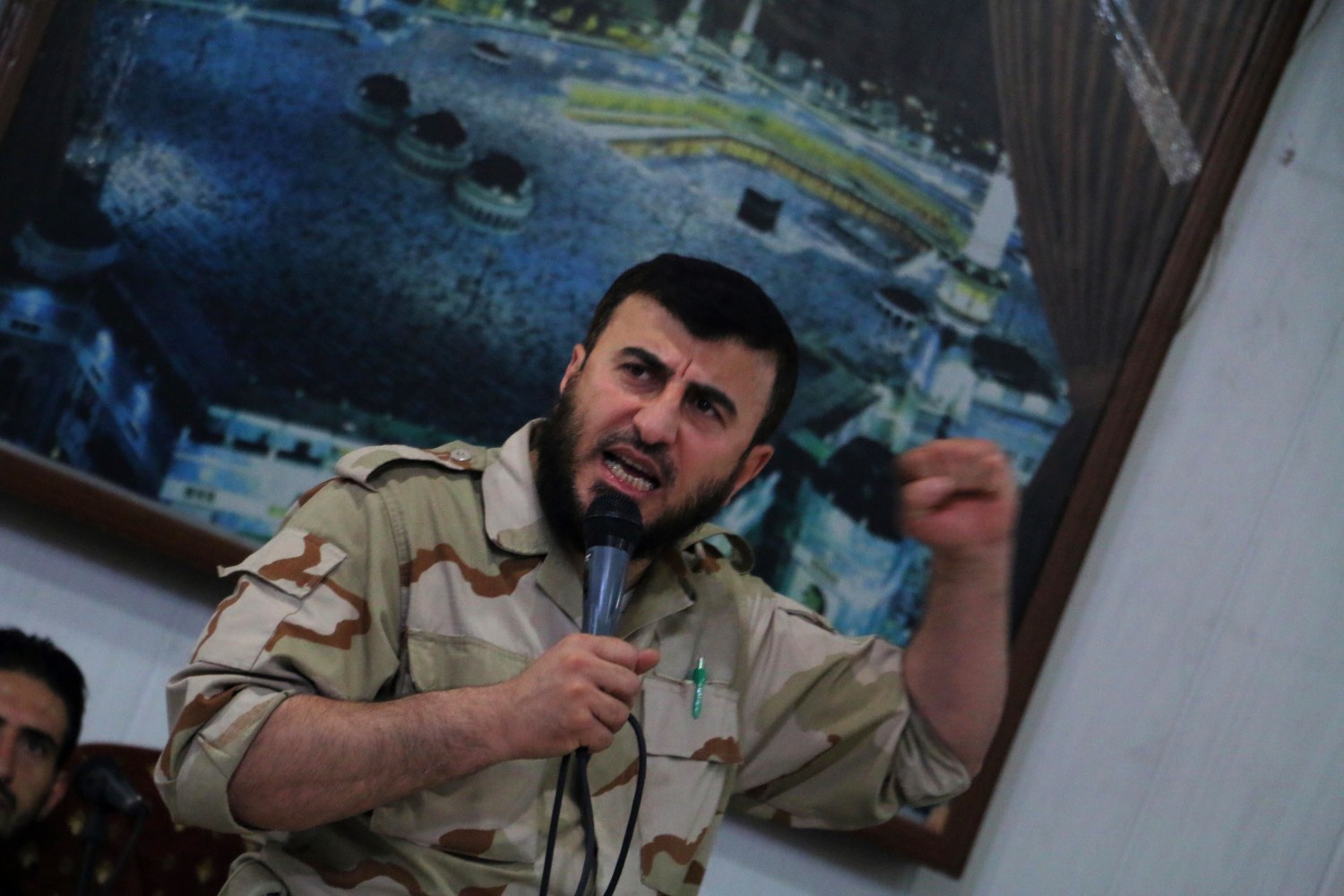Disengaging Peace Engagements
"Rebel groups should realize they are facing a war of extermination by [Russian President Vladimir] Putin's regime."
Labib Nahhas, Ahrar al-Sham
"[The] next stage will witness the liquidation of those leaders who began the uprising [against Assad]."
Abu Hassan al-Muhajer, Ahrar al-Sham
"[The death of Allouch, who led the Army of Islam since its founding four years earlier might represent] a decapitation strike [for the group]."
"Add to that the fact that the Islam Army's dominance has created so much resentment among other factions over the years, and the situation seems very unstable."
Aron Lund, Syria expert, Syria Comment blog
 |
| Zahran Allouch is pictured on July 21, 2015 in the Syrian town of Douma. AMER ALMOHIBANY / AFP - Getty Images |
Russian warplanes fired ten missiles at the site where Allouch and other commanders in his group were meeting in Otaya, according to Mazen al-Shami, an opposition activist. Allouch was strongly backed by Saudi Arabia, and represented one of the most powerful rebel commanders controlling large parts of the Damascus suburbs. It was his prominence and his success against the Syrian regime that prompted his death.
Syrian President al-Assad has no wish to negotiate with rebel leaders he describes as "terrorists", although the fact is anyone who opposes him is described as a terrorist, and Moscow was pleased to oblige their Syrian client. Allouch was a former prisoner released in an amnesty agreement in March 2011. He went on to distinguish himself, founding the Army of Islam and representing a threat to ISIL.
It isn't yet known whether ISIL's Caliph Baghdadi has congratulated and expressed his appreciation to President Assad, nor conveyed his regards to Moscow.
Clearly it seems the airstrikes represented a special message to the rebel groups and their Arab world backers; the Syrian-Russian alliance means to decimate the commanding ranks of the anti-Assad rebels. Any negotiations that President Assad may be prepared to carry through will be with a much diminished rebel command. His emphasis on commanders like Alloush sharing everything in common with Islamic State as terrorists is reflected in this strike.
It seems reasonable to assume that under the circumstances the Army of Islam will no longer claim participation in the United Nations' imagined peace process. Alloush's killing has already had consequences in the southern suburbs of Damascus where an ongoing truce has been suspended. And it seems entirely feasible that the UN plan led by John Kerry and Sergey Lavrov that brought Iran, Saudi Arabia and Turkey to agree to a discussion to end the conflict has been deliberately sidelined.
Those talks might have been as reliably sincere as assurances by Moscow that its airstrikes were primarily meant to target ISIL, even while the U.S. accuses Russia of attacking a broad range of rebel groups opposed to Assad as their main priority, with a few ISIL attacks thrown in for good measure, and mostly to avert such accusations.
Labels: Conflict, Rebels, Russia, Syria, United States

<< Home